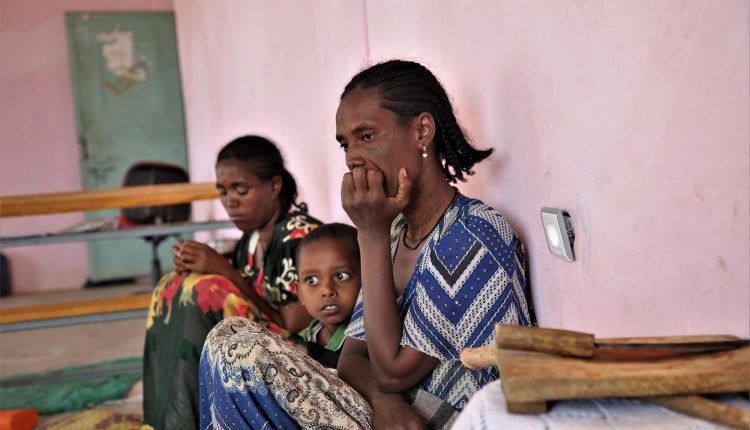Over 100,000 women who became victims of rape during the two-year civil war in the northern Tigray region of Ethiopia, have been ostracised by their own families, according to a new study conducted by Kiros Berhane, a biostatistician at Columbia University.
Numerous women who gave birth due to these atrocities are grappling with a hidden agony. All parties involved in the war were reported to have committed rapes, according to human rights groups and victims.
These women have been doubly victimised – first during the conflict between Ethiopia’s military, Eritrean soldiers, and Tigrayan rebels, and then by their own communities, even after a ceasefire brought a temporary halt to the hostilities a year ago.
Shila, a Tigrayan woman survived three months of sexual enslavement during the civil war in Ethiopia, which resulted in the birth of a son conceived by one of her captors. She kept this a secret, insisting that her youngest child was born from a secret visit by her husband, who was a militiaman from Tigray.
However, the most systematic and organised violence was inflicted upon Tigrayan women. They reported being sexually assaulted by Ethiopian and Eritrean soldiers, as well as militiamen from Ethiopia’s Amhara region.
The government-operated Women’s Bureau reported that more than half of the women who arrived at hospital rape centres were pregnant.
Interviews with medical staff, counselors, nuns, and priests revealed that most men abandoned their wives who had been raped, particularly those who bore children as a result.
A report by Physicians for Human Rights (PHR) and Organisation for Justice and Accountability in the Horn of Africa (OJAH) indicates that over 75 percent of instances, multiple men participated in the sexual assault of a single woman.
This led the authors to deduce that sexual violence was not random, but rather a premeditated and systematic tactic employed in warfare.
“Our most important finding is that sexual violence in the context of this conflict is still ongoing,” said Ranit Mishori, a professor of family medicine at the Georgetown University School of Medicine in Washington, DC and a co-author of the report.
He further continued, “the medical records we reviewed document serious short and long-term physical and psychological consequences, such as post-traumatic stress disorder, depression, and various types of injuries and disorders of the reproductive organs.”
Mishori said that the United Nations and the African Union need to intensify their efforts to bring the culprits to justice, even in a situation where the Ethiopian government is attempting to obstruct independent inquiries.


